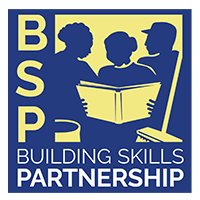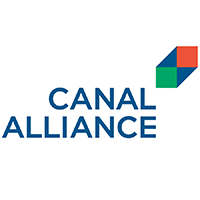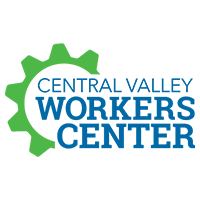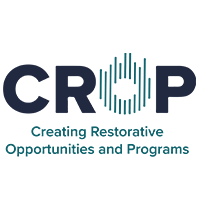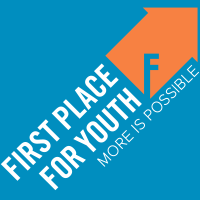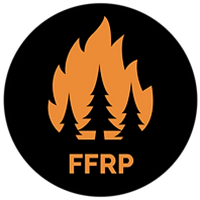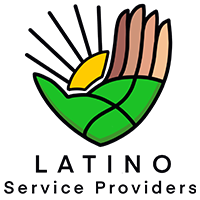
Solving the Workforce System’s Job Quality Paradox
July 9, 2024
At a glance
JFF, Path Group, and ReWork the Bay are working with eight California workforce development nonprofits in a participatory research project to identify ways to improve job quality for frontline workforce development employees.
In today’s workforce ecosystem, there’s an apparent, yet often glossed-over, paradox: Client-facing employees in nonprofit workforce development organizations—case managers, community outreach specialists, career coaches, and others—are instrumental in helping jobseekers overcome barriers limiting their access to quality jobs, but at the same time the employees themselves often don’t have quality jobs. Managing high caseloads, they often work long work hours and contend with constant turnover and burnout.
In addition, a common strategy for some of these organizations is to hire direct service staff with lived experience navigating challenges similar to those facing the jobseekers they serve. Many of these workers are people of color and may be dealing psychological stress and mental health issues as a result of experiencing racism in their daily lives. Organizations often lack the resources to ensure that these and other employees have the support they need to maintain their mental, physical, and economic well-being. Furthermore, organizational leaders often make critical decisions in a top-down manner, without seeking insights or guidance from the rest of the staff. We see this as a missed opportunity that can prevent staff from feeling empowered in their work, which may affect their overall job satisfaction.
Our Search for Solutions
In May 2023, ReWork the Bay, with funding from the James Irvine Foundation, launched an effort to address this paradox in partnership with Jobs for the Future (JFF) and Path Group. We are working with eight California-based nonprofit workforce organizations on a participatory research project to find ways to improve job quality in the workforce development system. Each of these organizations has stepped up to reimagine job quality for its workers, identify key strategies for improvement, and develop pilot program ideas that meet the needs of client-facing staff. The organizations are currently deep into their research efforts, with plans to share findings later this year, and we’re excited to offer an early look at strategies that workforce agencies could consider adopting to improve their capacity to offer their employees quality jobs.
Research Approach
What Is Participatory Research, and Why Are We Doing It?
Participatory research, or worker-led research, is a collaborative research approach that’s designed and led by people who are affected by or have lived experience with the research topic. In this initiative, we call them “worker-researchers.” Few studies exploring job quality actively seek input from workers themselves on research methodology or involve workers in shaping recommendations. However, by centering the experiences of those closest to the issues, the participatory research model can create a stronger foundation for lasting, impactful change at individual organizations and throughout the workforce development ecosystem. Staff members are more likely to trust recommendations that come from their peers, rather than top-down mandates from leadership, and worker-researchers are usually in a better position to develop solutions that address the core of the issues. Participatory research also serves as a professional development experience, offering direct service staffers an opportunity to develop research skills and grow as leaders in their organizations.
Who’s Involved?
Representing three regions of California—the North San Francisco Bay Area, Fresno, and Los Angeles—the following nonprofit workforce organizations are participating in this project:
What Can Your Organization Do Now to Get a Head Start on Job Quality?
Below are some early takeaways from this participatory research project—actionable tips for nonprofit organizations to follow so they’re set up for success in addressing job quality within their own organizations.
Conduct an internal job quality ‘audit.’
An internal job quality audit or self-assessment can be a proactive measure to examine the existing job conditions within an organization and identify both strengths and shortcomings. As part of the participatory research process with ReWork the Bay, all eight organizations performed self-assessments at the start of their research activities. These foundational assessments were instrumental in setting baselines and understanding the specific circumstances at each organization. They provide insights that allow the organizations to strategically target their interventions and tailor approaches to effectively fill the identified gaps while building on their strengths.
Strategies in Action
The self-assessments highlighted several innovative job quality initiatives underway at organizations involved in the research project. For instance, Canal Alliance recently adopted a four-day workweek schedule that enhances employee well-being and work-life balance while also maintaining sufficient staffing to continue to provide exceptional service for the community. Meanwhile, Neighborhood Industries is currently offering stipends and comprehensive supportive services to help its employees address needs in areas like housing, transportation, and professional growth. And First Place for Youth (FPFY) has conducted employee satisfaction surveys to learn more about employees’ experiences. Our job quality project aims to strengthen these efforts through a worker-centered lens.
Embrace internal job quality as a leadership priority.
An effective way to ensure that internal job quality gets the attention it deserves is to secure leadership buy-in. One way to do that is to make job quality a regular topic of discussion in senior leadership and board meetings. Highlighting job quality as a priority at the leadership level underscores its significance and ensures that it remains on the strategic agenda. By consistently communicating the importance of job quality in board meetings, organizations can maintain momentum and ensure that both leadership and frontline supervisors are aligned in their efforts to enhance the work environment, which in turn helps drive meaningful and sustained improvements across the organization.
Strategies in Action
At the Forestry and Fire Recruitment Program, the leadership team has actively been prioritizing job quality and worker agency, working to foster a culture of trust by empowering employees to use their lived experiences as assets. For example, FFRP cofounders themselves transitioned from working in California Department of Corrections and Rehabilitation “Fire Camps” while incarcerated to professional careers within the U.S. Forest Service and the California Department of Forestry and Fire Protection, and the team continues to hire individuals with similar lived experiences. All this contributed to team members at both the staff and leadership levels being open to participating in this job quality research.
Our goal is to help these eight nonprofit organizations—and others—test and eventually implement these worker-led strategies at scale.
Embrace teamwide power-sharing.
To create workplaces that are truly collaborative and inclusive, we encourage organizational leaders to implement policies and practices that foster a collective, organization-wide power-sharing approach to decision-making that intentionally incorporates employee voice. Power-sharing in this context is defined as ensuring that diverse voices have the opportunity to influence decision-making processes within an organization.
Power sharing begins by creating opportunities for all staff members to co-design approaches and provide feedback and input about the direction of organizational strategies and programs. Offering professional development and leadership growth opportunities for frontline staff can be another transformative strategy. By strengthening the trust among all members of their staffs—including leadership and frontline workers—organizations can cultivate environments that are better equipped for success. This approach not only improves job satisfaction (which can yield improvements in staff retention rates) but also creates new pathways for personal and professional development and enhances the organization’s overall effectiveness.
Strategies in Action
The Central Valley Workers Center is inviting its worker-researchers to attend the annual organizational strategy planning session to share early insights from their research. This experience will not only give the employees opportunities to engage directly with leadership in key decision-making activities; it will also empower them to grow as leaders.
To create workplaces that are truly collaborative and inclusive, we encourage organizational leaders to implement policies and practices that foster a collective, organization-wide power-sharing approach to decision-making.
Leverage your strengths, no matter what stage of growth your organization is at.
Both growing and mature organizations have strengths that they can leverage to address job quality gaps. Smaller organizations, for example, often benefit from greater flexibility and agility, allowing them to experiment with innovative approaches and rapidly adapt to new challenges. On the other hand, larger organizations can leverage their established reputations and accumulated experience to attract additional funding from new sources and influence broader systemic changes. By understanding and utilizing these strengths, organizations can find unique ways to advance job quality.
Strategies in Action
With just five full-time and five part-time employees, Latino Service Providers has the flexibility to actively involve all staff members in the exploration of innovative approaches to swiftly respond to evolving challenges. The organization has adopted an inclusive approach that includes soliciting ideas from individual staff members and engaging in hands-on experimentation with new strategies.
On the other hand, the Building Skills Partnership is a larger, mature organization with 37 full-time employees. Thanks to its established reputation in the field, it can access diverse sources of funding to invest in initiatives to improve job quality and create new opportunities for internal mobility. And CROP, which was founded in 2008 by people who were incarcerated at that time, exemplifies innovation and adaptability by taking a holistic approach to addressing the needs of people who are rejoining their communities following incarceration. That approach has helped CROP attract an influx of public and private dollars in recent years, and the added resources enable the organization to test new internal processes.
Proactively talk to funders about investing in this type of work.
It’s crucial for organizations to proactively engage with their current and future funders about the importance of investing in initiatives that enhance job quality for their employees. By discussing the benefits and positive impact of improving job quality, particularly in service delivery and achieving strategic goals, organizations can encourage funders to see these initiatives as critical components worthy of support. This proactive approach ensures that funders understand the value of their investments not just in terms of immediate outcomes but also in terms of their contributions to long-term sustainability.
Strategies in Action
Philanthropic organizations are growing increasingly interested in the quality of jobs at the nonprofits they support. Harnessing that interest to spur momentum toward real improvements, ReWork the Bay, the James Irvine Foundation, and several other philanthropic organizations are planning a conference to discuss the topic of job quality for employees of nonprofits. You can learn more about that here.
What’s Next?

When their research projects conclude later this year, the worker-researchers will propose a job quality pilot strategy for each of their organizations based on their findings. Our goal is to help these eight nonprofit organizations—and others—test and eventually implement these worker-led strategies at scale, allowing us to measure the impact of this investment and understand how improved job quality for frontline staff may benefit not only the employees themselves and the workforce development field at large but also the jobseekers and other clients they serve.
The days of using job placement for clients as the sole measure of success for workforce development organizations are over. It’s time for funders to focus on helping people achieve security, belonging, and agency by providing the tools to access resources and realize their full potential for their own well-being and that of the community—and one way to start is to recognize the needs of both jobseekers and the workforce development professionals who serve them.
Reach out if you are interested in exploring job quality solutions at your own nonprofit and stay tuned to learn more about this emerging research in 2025.
Acknowledgements
Worker-researchers have been at the forefront of this research effort. We value the impact each worker-researcher has made and thank them for their contributions so far.
| Name | Organization |
|---|---|
| Jasmin Castaneda | Building Skills Partnership |
| Sergi Bach | Building Skills Partnership |
| Regina Vindel | Canal Alliance |
| Franccesca Santana/td> | Canal Alliance |
| Oscar Venegas-Jacobo | Central Valley Workers Center |
| Mayra Cruz | Central Valley Workers Center |
| Alejandra Vila | CROP |
| Stanford Chatfield | CROP |
| Eddie Sumlin | First Place for Youth |
| Lara Torii | First Place for Youth |
| Anthony Bracy | Forestry and Fire Recruitment Program |
| Aviance (Avi) Contreras | Forestry and Fire Recruitment Program |
| Alex Sosa | Latino Service Providers |
| Saul Ramirez | Neighborhood Industries |
| Rodasja Conley | Neighborhood Industries |
| Joslyn Beard | CROP (former) |
| Maya Meza | First Place for Youth (former) |
| Alayza Cervantes | Latino Service Providers (former) |
| Maria Tah Pech | Latino Service Providers (former) |
